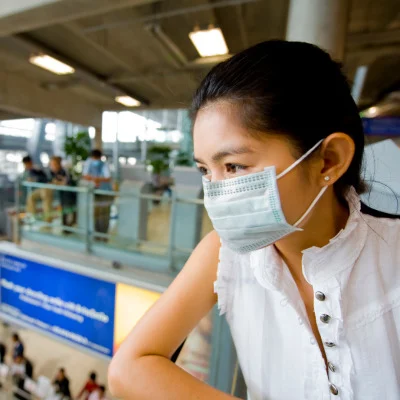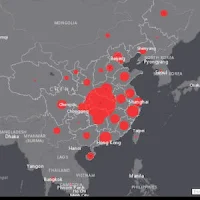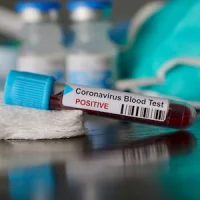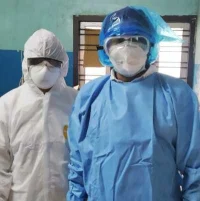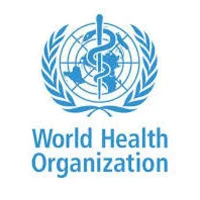The new coronavirus was declared a global emergency (a Public Health Emergency of International Concern – PHEIC) during the second meeting of the Emergency Committee convened by WHO Director-General Tedros Adhanom Ghebreyesus on 30 January.
"The main reason for this declaration is not what is happening in China
but what is happening in other countries," he said. The concern is that it
could spread to countries with weaker health systems, such as Africa or large
Asian cities.
You may also like:Coronavirus Outbreak: On the Verge of Global Emergency
During the meeting, China representatives reported 7,711 confirmed cases throughout the country, of which 1,370 are severe and 170 fatal. 124 people have recovered and been discharged from hospital. There are also 12,167 suspected cases. By morning 31 January, the total death toll rose to 213, mostly in China’s Hubei province, while confirmed cases in China jumped to 9,692.
The reported cases outside mainland China have multiplied from 83 cases
in 18 countries as of 30 January to 105 in 19 territories the next day, including
countries such as Thailand, Japan, Singapore, Australia,
Malaysia, South Korea, France. Most international cases are in people
who had been to the Chinese city of Wuhan in Hubei; there have been no deaths.
About 20% of reported cases are severe, and need hospital care; about 2% of
them have been fatal. As yet, there is no vaccine or antiviral treatment. The work
on vaccines and on treatments has started, but these are six to 12 months away.
There have been eight cases of human-to-human transmission in Germany,
Japan, Vietnam and the U.S. It is reported that health officials have
identified evidence of transmission along a chain of four ‘generations,’
suggesting sustained human-to-human transmission.
Cost of Restrictions
The WHO Emergency Committee does not recommend any travel or trade restriction based on the current information available. However, a number of countries, including the U.S., Japan, the UK, advised their citizens to avoid travel to China and to those who are currently there, to leave the country. The UK, Australia, South Korea, Singapore and New Zealand are expected to quarantine all evacuees for two weeks to monitor them for symptoms and avoid contagion.
Russia,
Mongolia and Kyrgyzstan have decided to close its borders with China. Major
airlines, such as British Airways, Lufthansa, Cathay Pacific, Air France, Virgin
Atlantic, have suspended direct flights to and from China. North Korea, Italy
and Israel have barred flight connections with China.
Companies like Google, Ikea, Starbucks and Tesla have closed their shops or stopped operations.
China’s growth in the first quarter could
fall to 2%, from 6% before the outbreak. With China being the second world’s
largest economy, the impact on global growth will be noticeable. According to Bloomberg,
the global cost of the coronavirus could be three or four times that of the
2003 SARS outbreak that sapped the world’s economy by $40 billion.
Praise and Criticism Towards China
The China’s Hubei province, home to nearly 60 million people, is in a state of lockdown, and Wuhan, the centre of the outbreak, is sealed off. China has also put numerous transport and work restrictions in place across its territory. The government is building two hospitals in Wuhan, and two more hospitals are planned for the cities of Huanggang and Zhenzhou.
During
the press conference after the meeting of the Emergency Committee, the WHO Director-General
described the virus as an ‘unprecedented outbreak’ and praised the ‘extraordinary
measures’ Chinese authorities had taken. “Let me be clear, this declaration is
not a vote of no confidence in China," he said.
The organisation has welcomed China’s “commitment to transparency, and
the efforts made to investigate and contain the current outbreak,” including
“daily contact with WHO and comprehensive multi-sectoral
approaches to prevent further spread.”
However, there
has been lots of criticism towards Chinese authorities as well over
their handling of the coronavirus outbreak. According to FT, police
had punished medical personnel for ‘rumour-mongering’ when they shared early
discoveries of the infection online. Critics have also questioned if the government
response was fast enough – by the time China had introduced travel restrictions,
up to 5 million individuals had already travelled
from Wuhan for Lunar New Year.
John Hopkins’ Center for Health Security Senior scholar Dr Eric Toner said in
an interview to Bloomberg
that despite China doing a much better job than during SARS outbreak, it is too
late now as the virus is out of control.
Research and Analyses
Several research groups have released analyses of the new coronavirus epidemic. The New England Journal of Medicine published an analysis the first 425 confirmed cases in Wuhan. The researchers conclude that the mean incubation period for the disease is 5.2 days, and note that there was not a single case recorded in a child under 15. The average number of people infected by each patient (the reproductive number) is estimated being from 2.2 to 4.08 in different studies. Imperial College London has produced several reports on the novel coronavirus suggesting that each new coronavirus case is infecting on average about 2.5 other people.
The new coronavirus has been so far estimated as less deadly
than SARS, which killed 1 in 10 infected patients (in total, 774 people in 17
countries). Another coronavirus, MERS (Middle East Respiratory Syndrome),
killed 1 in 3 patients, and for seasonal flu the rate is about 1 in 1,000. But
experts warn that for 2019-nCoV, as the novel coronavirus is known, it is still
too early to estimate fatality rates.
WHO Future Actions
WHO is planning the multidisciplinary technical mission to China, which will focus on investigating “the animal source of the outbreak, the clinical spectrum of the disease and its severity, the extent of human-to-human transmission in the community and in healthcare facilities, and efforts to control the outbreak.” It is expected to provide the international community with information to help in understanding the situation and its impact.
During the meeting it was decided that the
Emergency Committee will be reconvened within three months or earlier.
Before the current outbreak, WHO had declared PHEIC five
times: H1N1 (2009), polio (2014), Ebola in West Africa (2014), Zika (2016) and
Ebola in the Democratic Republic of Congo (2019).
Sources: WHO, Bloomberg, BBC, Financial Times, The Economist, JAMA Network, Imperial College London, NEJM
Image credit: iStock





